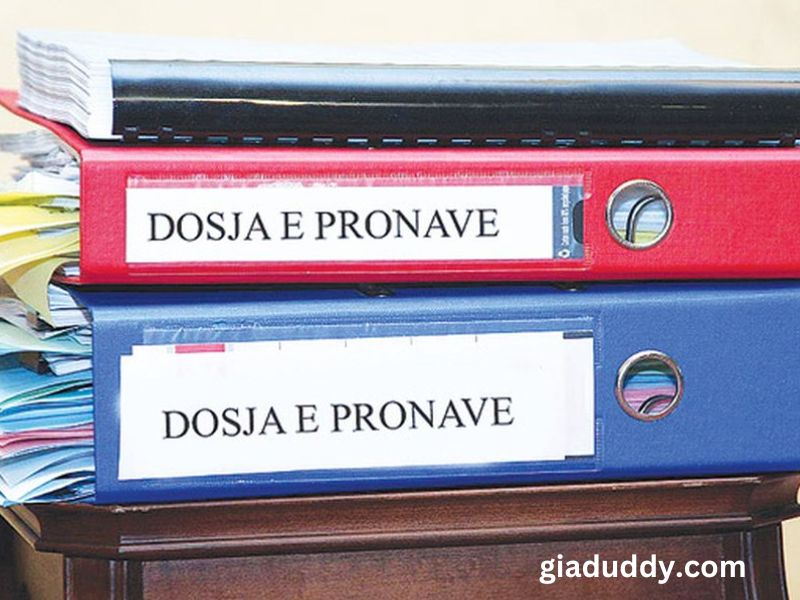In Albania, the property compensation process has been a significant topic in recent years, particularly due to the efforts to address issues related to private land that was affected by informal construction during the communist era. One of the most crucial aspects of this process is the “Lista e Re Me Pronaret”, which refers to the updated list of property owners who are entitled to financial compensation due to these historical irregularities. This compensation is part of a broader initiative to legalize and urbanize previously unregulated constructions and ensure justice for affected citizens.
What is Lista e Re Me Pronaret?
The Lista e Re Me Pronaret is an official list compiled by the Albanian government, specifically through the Agency for the Treatment of Property (ATP). It includes the names of individuals who are eligible to receive compensation for properties that were either destroyed, expropriated, or impacted by illegal construction. This compensation aims to reimburse the owners for the loss or devaluation of their properties and is calculated based on the current market value of the affected land or buildings.
The compensation is part of Albania’s efforts to resolve past injustices and ensure that citizens whose properties were affected by government decisions during and after the communist period receive due financial support.
How Does the Compensation Process Work?
The process of determining compensation for property owners is based on the principles laid out in the Albanian laws, particularly Law No. 9482, which regulates the legalization, urbanization, and integration of unauthorized buildings. According to the legislation, the ATP is responsible for reviewing and processing claims submitted by property owners seeking compensation. These claims are evaluated based on several criteria, including the property’s value, its current legal status, and the impact of informal construction activities on the land.
Once a property claim is accepted, the compensation is calculated at a specific percentage of the property’s current market value. Typically, property owners are compensated for up to 70% of the market value of their properties. In some cases, this compensation is divided into multiple installments, based on the total amount approved for each property owner.
What Are the Benefits of Lista e Re Me Pronaret?
The main benefit of the Lista e Re Me Pronaret is the financial compensation for property owners who lost part or all of their property due to the impacts of informal constructions. This is a significant relief for many people who have faced long-standing issues with the legal status of their properties. By receiving compensation, property owners can either restore their land, invest in new developments, or secure their financial futures.
Additionally, this list helps to bring clarity and transparency to the property compensation process. With the names of qualified beneficiaries made public, the list ensures that those entitled to compensation receive it promptly and that the allocation of funds is managed according to the rules and regulations established by the government.
Key Cities and Properties Affected by Compensation
As part of the process, compensation is being distributed across various Albanian cities, including major urban areas like Tirana, Durrës, Fier, Vlorë, and Elbasan. Each of these cities has its own set of affected properties, and property owners within these regions are included in the Lista e Re Me Pronaret. In particular, the city of Tirana has been a focal point of property compensation due to its rapid urbanization and significant amount of informal construction during past decades.
The compensation is divided into phases, with initial payouts often covering 70% of the market value of the property. This approach allows the government to manage the distribution of compensation funds gradually while ensuring that all eligible property owners receive their due financial reparations.
Challenges and Criticism
While the Lista e Re Me Pronaret represents a major step toward addressing property disputes, it has not been without its challenges and criticisms. One of the main issues revolves around the slow pace of compensation distribution. Many property owners have expressed frustration over the delayed payments and the complexity of the claims process. In some cases, the evaluation of property values and the legal review of claims can take years, leaving citizens uncertain about when they will receive their compensation.
Moreover, there have been concerns about the accuracy of the property evaluations. Some owners feel that the government has undervalued their properties, resulting in lower compensation than expected. This has led to calls for more transparency and a more streamlined approach to property assessment.
Conclusion
The Lista e Re Me Pronaret is an essential initiative that addresses historical property injustices in Albania. By offering financial compensation to property owners whose lands were affected by informal constructions, the Albanian government aims to provide much-needed justice and restore fairness. While the process has been slow and at times contentious, it is a critical step toward improving the legal and financial status of many affected citizens.
For property owners in Albania, the Lista e Re Me Pronaret represents hope for restitution and compensation that can help them recover from past losses. Despite the challenges, the initiative underscores the importance of legal frameworks that ensure fairness, transparency, and accountability in property-related matters. As Albania continues its efforts to modernize and legalize its property sector, the compensation process will likely evolve, offering better opportunities for affected citizens.
Understanding how this list operates and what it means for property owners can help individuals navigate this important process, ensuring that they receive the compensation they are entitled to under the law.


